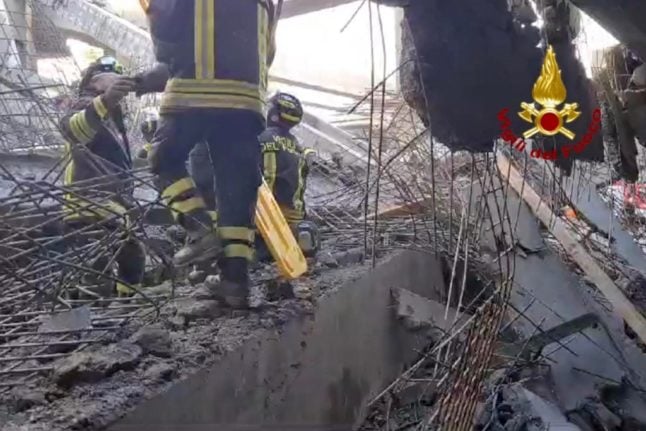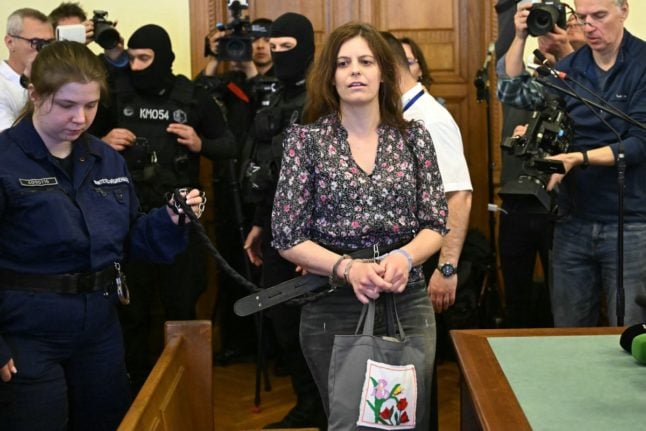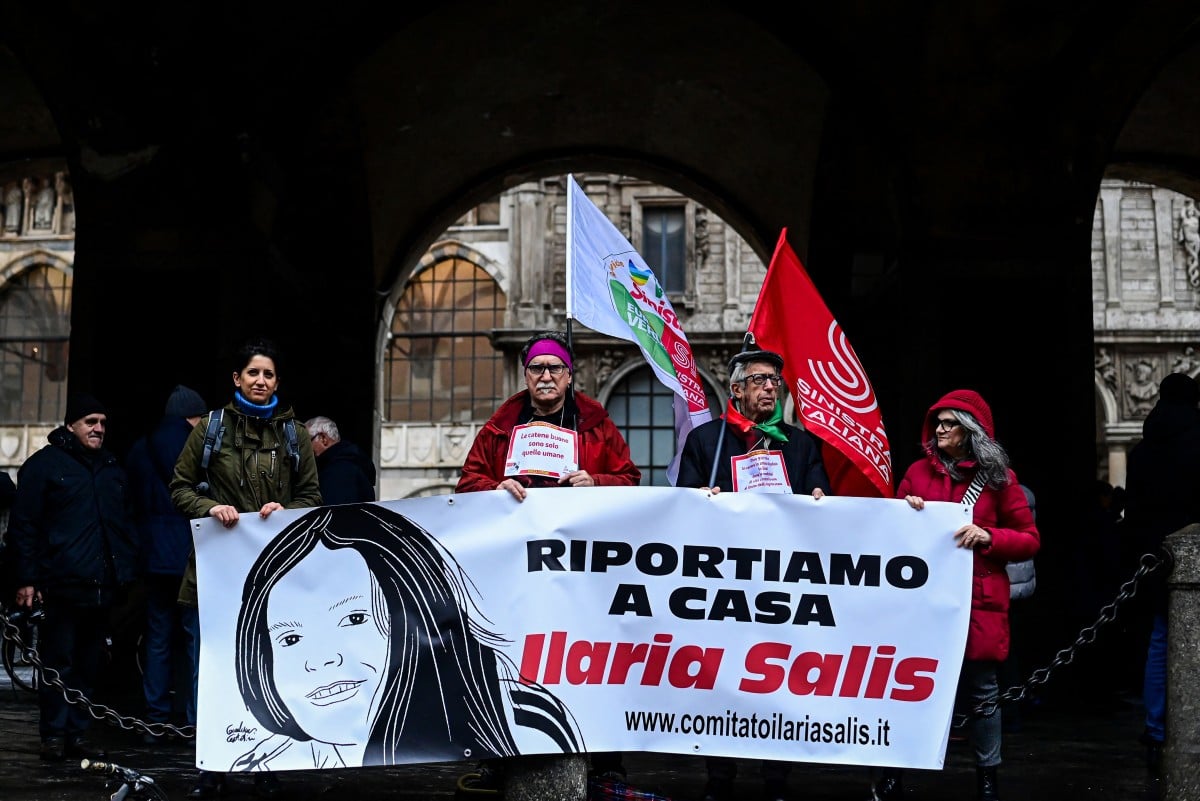As of Friday afternoon, three workers had been found dead, three injured, and two were missing following the collapse at a supermarket construction site on Florence’s Via Mariti, the Corriere della Sera newspaper reported.
“Three workers died because of their jobs, in the heart of Florence,” said Monia Monni, civil protection officer for Italy’s central Tuscany region, calling it an “immense tragedy”.
In a statement posted on Facebook, she said three people were in hospital, two of them in a serious but not life-threatening condition, while “firefighters are still searching for two people missing under the rubble”.
Florence Mayor Dario Nardella expressed his condolences and declared Saturday a city-wide day of mourning for the workers.
“Grief and shock over the tragedy at the construction site for the new supermarket in Florence,” he wrote in a post on X, formerly Twitter.
“On behalf of myself and the [Florence city council] I express condolences for the victims and thank all the rescuers in action. Waiting for updates on the other workers involved.”
Dolore e sgomento per la tragedia al cantiere del nuovo supermercato a #Firenze. Seguiamo costantemente la situazione. Esprimo a nome mio e del @comunefi cordoglio per le vittime e ringrazio tutti i soccorritori in azione. In attesa di aggiornamenti sugli altri operai coinvolti
— Dario Nardella (@DarioNardella) February 16, 2024
The accident took place on a site northwest of Florence’s main train station, where workers were putting together prefabricated concrete structures for a new Esselunga supermarket.
Esselunga president Marina Caprotti said the company’s Florence outlets would close on Friday afternoon as a mark of respect.
Speaking earlier before the confirmation of the deaths, Prime Minister Giorgia Meloni offered her condolences to those affected and prayers for those injured and missing.
“It is another story… of people who go out to work, who simply go out to do their job, and do not come home,” she said during a visit to Calabria.
“Safety at work must be considered a priority, it is unacceptable that every day we talk about deaths and injuries as if we are at war,” said the CGIL union in a statement.
Initial reports indicate that the incident was caused by the collapse of a pylon, which could have been caused by its misplacement or by defects in the composition of the concrete.
Prosecutors are reportedly considering charges of negligent collapse and manslaughter, though no suspects have been named at this stage.
Caprotti said Esselunga had outsourced the site’s construction to a third party.
1,041 workers were killed at their jobs in Italy in 2023, according to news agency Ansa, amounting to almost three a day.
According to European Union statistics, Italy recorded 3.17 workplace deaths per 100,000 employed people, above the bloc-wide average of 2.23 but behind France (4.47) and Austria (3.44).
Across the EU, 22.5 percent of all fatal workplace accidents took place within the construction sector.
Italy’s Labour and Social Policies Minister Calderone said on Friday she was closely following the rescue operations and considering what additional measures to take.




 Please whitelist us to continue reading.
Please whitelist us to continue reading.
Member comments